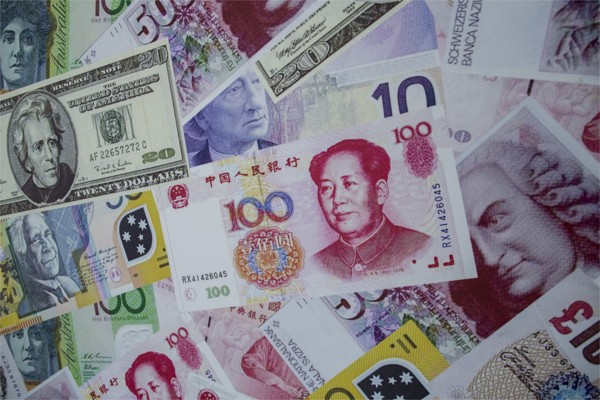
Offshore yuan trades weaker than onshore counterpart for third day
Offshore yuan was little changed at 6.9115 per dollar, but trading at a weaker level than onshore yuan’s 6.9051
China’s offshore yuan (CNH) traded at a weaker level than its onshore counterpart (CNY) for a third straight day on Wednesday, as concerns linger the regulatory crackdown on shadow banking will weigh on economic growth.
“Regulators need to better manage market expectations to prevent stoking panic and equities and bonds from persistently tumbling to defend the CNH value,” Scotiabank wrote in a latest research note. “The inverted onshore-offshore dollar/yuan spot gap could swing into positive territory intermittently.”
The People’s Bank of China on Wednesday set the yuan reference rate at 6.9066 to the US dollar, 0.04 per cent weaker than on Tuesday as the dollar index was boosted overnight by buoyant sentiment.
Offshore yuan has been trading at a stronger level than onshore yuan for most of this year, until seeing sporadic inversions in recent weeks.
On Wednesday, offshore yuan was little changed at 6.9115 per dollar, trading at a weaker level than onshore yuan’s 6.9051. Unlike its onshore counterpart which is freely traded without restrictions, offshore yuan has fallen 0.1 per cent this week and broke the closely-watched 6.9 level last Friday, indicating that slight depreciation pressure has re-emerged.

The State Administration of Foreign Exchange issued a notice on trade-related foreign exchange payments, effective May 1, that requires banks to check that flows are not speculative outflows.
With CNY weakening over the last two years, Chinese enterprises may have manipulated trade documents to send money out of China, Nordic investment bank SEB wrote in a note.
Now companies must provide authentic customs declaration information to banks for them to verify in the system.
JPMorgan, meanwhile, has published a note which says China’s producer price inflation cooled for a second month as iron ore and coal prices tumbled further.
PPI inflation moderated on global commodity prices and liquidity impact arising from recent tightening financial stability operations, it said.
PPI inflation increased 6.4 per cent from a year earlier in April after a 7.6 per cent gain in March, according to official data released on Wednesday. CPI inflation edged up to 1.2 per cent from 0.9 per cent in the previous month.
However, many analysts continue to expect resilience in overall yuan sentiment because the market has already mostly priced in a rate rise by the US Federal Reserve in June, and given that China’s Communist Party will have a major five-year reshuffle in October, which will likely prevent yuan weakness over the summer.

